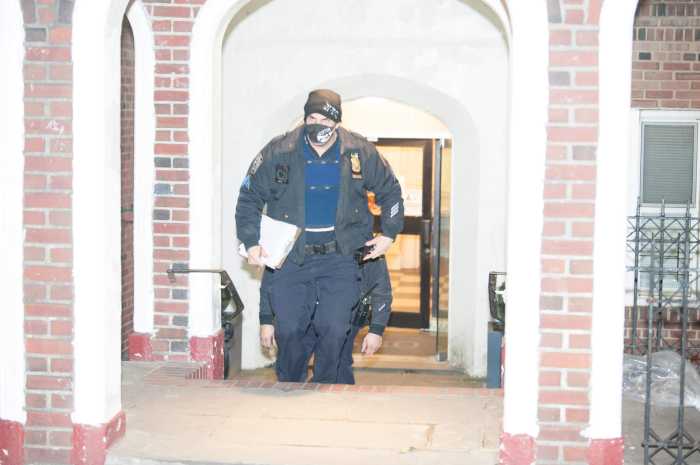A Brooklyn yeshiva admitted in federal court that it was involved in several overlapping frauds, including one to wrongfully obtain millions of dollars that were designated to feed children in need, prosecutors announced Monday.
Central United Talmudic Academy (CUTA) entered a three-year deferred prosecution agreement with the government after being charged with conspiring to commit wire fraud. As a part of the agreement, the school must pay $5 million in penalties, in addition to more than $3 million in restitution it has already paid.
Elozer Porges, the former executive director of CUTA, and Joel Lowy, Porges’s assistant, both pleaded guilty in March 2018 for their roles in the conspiracy to defraud the government. Porges was sentenced to two years in prison in October 2019, while Lowy was sentenced to five years of probation, 1000 hours of community service and $98,407.21 in restitution in April 2022.
“The misconduct at CUTA was systemic and wide ranging, including stealing over $3 million allocated for schoolchildren in need of meals,” stated United States Attorney Breon Peace. “Today’s resolution accounts for CUTA’s involvement in those crimes and provides a path forward to repay and repair the damage done to the community, while also allowing CUTA to continue to provide education for children in the community.”
“Today’s admission makes clear there was a pervasive culture of fraud and greed in place at CUTA. We expect schools to be places where students are taught how to do things properly. The leaders of CUTA went out of their way to do the opposite, creating multiple systems of fraud in order to cheat the government. The FBI and our law enforcement partners will continue to investigate these types of frauds and schemes to ensure government programs benefit those they were designed to help without being exploited,” stated Assistant Director-in Charge Michael J. Driscoll.
According to court documents, between 2014 and 2016 CUTA received more than $3.2 million in reimbursement for a meal program that purported to feed students of the yeshiva. The program was found to be fake and the funding was used for other purposes, including subsidizing parties for adults. CUTA would fabricate records and then made dozens of sworn misrepresentations to government agencies.
While investigating the fake meal program, the investigative team found evidence of other fraudulent conduct by the school and its employees, including various payroll practices that enabled the School’s employees to commit benefit and tax fraud. For example, CUTA paid its employees in a manner that underrepresented their employees’ “on the books” income by paying employees in cash and with “coupons” that were redeemable at local stores for a specific cash value. Court documents show that the employees would use these coupons to make purchases, and the stores would then redeem the coupons back to the school for payment, creating an underground economy. The school would also provide off-the-books income in other ways, including through undisclosed investment accounts.
The investigation found that the school partly engaged in these practices to facilitate additional fraud schemes committed by its employees. By underrepresenting their income, the school enabled its employees to obtain various public benefits, such as health care and childcare, that they wouldn’t normally qualify for if their true income was reported. The school would support these efforts by providing letters to government agencies that falsely stated that their employees only earned the “on the books” amount the School disclosed to the taxing authorities, thus enabling their employees to commit welfare and other benefits fraud. CUTA would then benefit itself from these misrepresentations by accepting and cashing childcare vouchers from its employees, including Lowy.
In addition to the payroll fraud, CUTA provided no-show jobs to non-employees, instituted “parsonage” tax exemptions for individuals who did not provide parsonage services, sought and obtained technology funding for uses unrelated to the school’s educational purposes and provided child care services without proper licenses.
As a part of the agreement, CUTA began to recognize and apply a zero-tolerance policy to the conduct they were charged for and engaged in a series of significant structural changes. The executive management team has since been replaced, and the school developed a set of financial and procedural controls, instituted a compliance manual to guide ethical decision-making; created an oversight committee to oversee the implementation of the new standards; and conducted audits to ensure ongoing compliance. The school must pay the fine and restitution and will be subject to supervision of an independent monitor for a three-year period, who will assess the school’s compliance with the agreement and ensure that CUTA continues to follow its legal and ethical obligations going forward.
DOI Commissioner Jocelyn E. Strauber said, “As detailed in the prosecution agreement, CUTA engaged in an extensive scheme to steal millions of dollars in public funds, diverting money intended to feed schoolchildren and facilitating tax and benefit fraud by its employees. DOI and its law enforcement partners in the United States Attorney’s Office for the Eastern District of New York, the FBI and the USDA are committed to the prevention of fraud that undermines public assistance programs. With this resolution, which includes a $5 million penalty, CUTA has acknowledged and will be held accountable for its misconduct.”
“The Child and Adult Care Food Program (CACFP) was created to provide food and nutrition to those who truly need this assistance. Those who are involved in fraud and abuse of USDA feeding programs will be investigated by our office to the fullest extent,” USDA Office of Inspector General, Special Agent-in-Charge Bethanne M. Dinkins stated. “Our joint investigation with the Federal Bureau of Investigation and the New York City Department of Investigation identified those who sought to profit from the CACFP through illegal schemes. The USDA Office of Inspector General will continue to dedicate investigative resources, working with our law enforcement and prosecutorial partners, in order to protect the integrity of these programs and bring to justice those who commit fraud.”





























